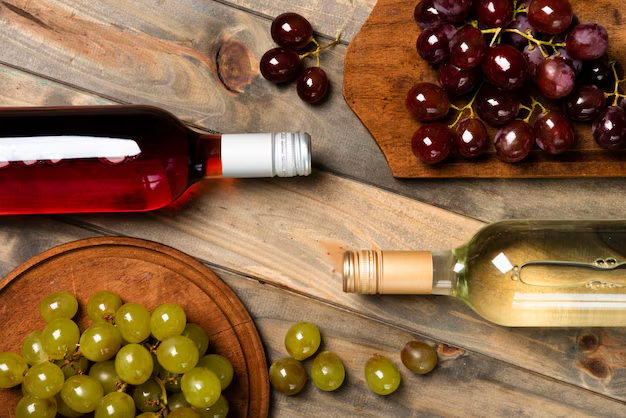Is Refrigerating Wine Your Best Bet to Keep It Fresh?
Wine holds a special place in many cultures around the world, often viewed as a symbol of sophistication, pleasure, and social gatherings. But when it comes to storing this beloved beverage, many wine enthusiasts find themselves puzzled over the best methods. One question often arises: Does wine go bad in the refrigerator? While the fridge is a popular choice for storage, it's essential to understand the intricacies involved to prevent your prized bottle from turning into a vinegar-like disappointment.
🍷 Understanding Wine's Sensitivity
The Delicate Balance
Wine is a living, breathing entity composed of various chemical compounds that interact over time. These interactions contribute to the aging process, which can enhance the flavor profile of the wine. However, when disrupted by unsuitable storage conditions—like improper temperature or humidity—these compounds can degrade, leading to spoilage.
Effects of Temperature Fluctuations
While refrigeration seems like a stable environment, particularly for whites and rosés, it's not perfect for long-term storage. Refrigerators can dry out corks, leading to oxidation, or cause certain wine characteristics to diminish. Reds, on the other hand, generally prefer being stored at slightly higher temperatures, often between 55°F and 60°F.
🧊 The Refrigerator as a Wine Storage Option
Short-Term vs. Long-Term Storage
Short-Term Suitability: Refrigerators offer a controlled atmosphere for short-term storage, typically a few days to weeks. This is beneficial when you’re planning a gathering or wish to keep opened bottles for a few extra days.
Long-Term Considerations: For aging wines or long-term preservation, the cold and dry environment of a refrigerator can be detrimental. Extended exposure to such conditions can alter aromas and flavors, particularly in red wines.
Ideal Types of Wine for Refrigeration
- Whites and Rosés: These wines tend to benefit the most from cold storage, as their crispness and freshness are often enhanced by lower serving temperatures.
- Sparkling Wines: These can also benefit from refrigeration in the short-term, maintaining their effervescence and lively flavors.
The Impact on Wine Quality
Optimal Conditions: Ideally, wine storage should balance temperature, humidity, and minimal exposure to light and vibration. A refrigerator's cold, dry, and dark environment can work for short periods but doesn’t cater to the humidity needs that a corked bottle may require over time.
🍾 How to Store Wine in the Refrigerator Properly
Tips for Preservation
- Position Matters: Store the bottle on its side to keep the cork moist, minimizing the risk of air exposure and oxidation.
- Seal It Right: Use a wine stopper or vacuum sealer to maintain freshness and prevent the wine from absorbing fridge odors.
- Mind the Temperature: Keep the fridge at a steady temperature without frequent changes, as fluctuations can negatively impact the wine.
Longevity of Opened Wine
Different wines last varying durations in a refrigerator:
- Sparkling Wine: Up to 3 days with a specialized stopper.
- White or Rosé Wine: 3 to 5 days, well-sealed.
- Red Wine: Best within 3 to 5 days, considering reds can tolerate slightly warmer environments.
🍽️ The Culinary Companion: Using Wine Before It Spoils
Creative Uses for Leftover Wine
Sometimes, the best way to ensure wine doesn’t go to waste is to incorporate it into your cooking. Here are some culinary tips and tricks:
- Sauces and Marinades: Use wine in your sauces or as a marinade for meats to enhance flavor profiles.
- Desserts: Poach fruits in leftover wine for an elegant dessert option.
- Frozen Wine Cubes: Freeze wine into ice cubes for use in future recipes or as a flavorful addition to drinks.
📊 Quick Reference: Wine Storage Tips
Here's a handy summary of how to properly manage your wine in the refrigerator:
| Wine Type | Refrigerator Lifespan | Best Practices |
|---|---|---|
| Sparkling | Up to 3 days | Use a specialized stopper to keep carbonation 💡 |
| White/Rosé | 3 to 5 days | Store on its side, use a wine stopper |
| Red | Best within 3-5 days | Keep at consistent temp, slightly warmer ideal |
The Broader Perspective on Wine Storage Alternatives
Wine Fridges and Coolers
For wine enthusiasts seeking a more specialized method, wine fridges offer a temperature-controlled environment tailored to both white and red varieties. Unlike regular refrigerators, they maintain optimal humidity levels and minimize the vibration and light exposure that can affect aging wines.
Natural Cellars and Home Storage
If you’re fortunate enough to have a natural wine cellar, this can be excellent for aging wines. In conditions often found in older homes or basements, cellars provide stable temperatures and humidity likely conducive to wine preservation.
🍇 Navigating Mistakes: Common Wine Storage Missteps
Common Pitfalls to Avoid
- Avoid Freezing: Freezing can cause wine to expand, push the cork out, and let in oxygen, which will spoil the wine.
- Stay Away from Sunlight: Ultraviolet light can degrade wine compounds, leading to a spoiled product. Always store wine away from direct sunlight.
- Proper Rack Usage: Use wine racks that are designed for bottles to ensure nadir and balance, particularly important when storing on its side.
Final Reflections
Wine, with its nuanced array of flavors and aromas, deserves care in its storage to ensure every sip is as delightful as the first. Refrigeration can be a practical solution for short-term needs, offering a stable environment to maintain wines' fresh and vibrant qualities in the immediate term. However, understanding the nuances of wine storage is crucial for those rare bottles you hope to age or keep for a significant event. Consider both the type of wine and its intended use when deciding on storage methods, ensuring your selection matches the characteristics of the wine and your own needs as a wine lover.
By recognizing the dynamics involved and taking diligent steps to store and preserve, you can indulge in your favorite wines while maintaining their essential qualities. Cheers to that! 🍷

